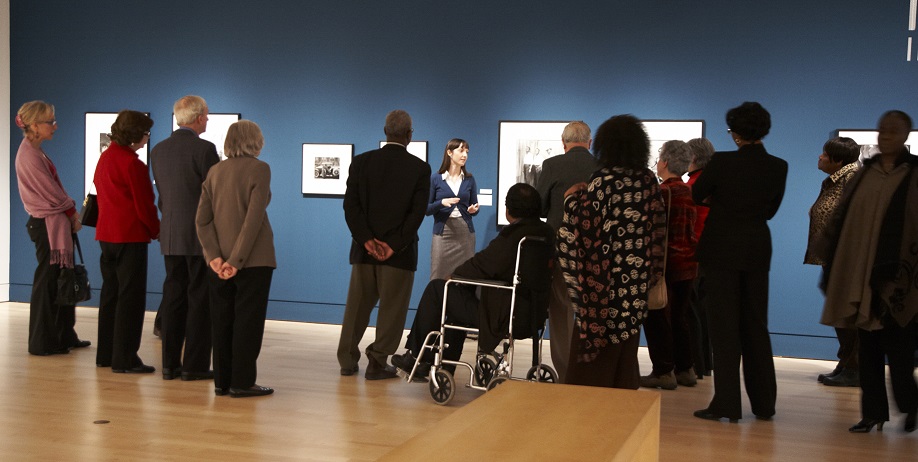The Ontario Arts Council (OAC), an agency of the Government of Ontario, serves as the primary funder of the arts in the province. It ensures that the public’s interest and investment in the arts is protected and secure.

The Government of Ontario and the creation of the Ontario Arts Council
The Arts Council Act was given third reading on April 26, 1963. In introducing the Act, then-Premier John Robarts stressed “we are giving the Council the widest possible scope in order that it may have as large an impact on the cultural life of our province as possible”.
Through the creation of OAC, the Government of Ontario has played a critical leadership role in enabling the arts to thrive in this province. Public appreciation for the arts has grown as our province continues to prosper, our population continues to increase, and artists seek to express who we are.
The arts enrich the life of every Ontarian. The OAC invests in the arts community for the enjoyment and benefit of all Ontarians. The OAC reports to the Ontario Legislature via the Ministry of Heritage, Sport, Tourism and Culture Industries.
Governance
The OAC board of directors is made up of volunteers appointed by the government of the day whose collective experience is in the arts, education, business and the professions. They ensure that OAC operates with accountability and transparency and reflects the diversity of Ontario’s arts community. Among them, OAC’s current board members have either served on the boards of or been involved in more than 40 arts-related organizations covering most arts disciplines.
There are several committees of the board to ensure that its fiduciary and other duties are met, including a Governance Committee, Finance and Audit Committee, a Public Affairs Committee, and a Human Resources Committee.
Governance Committee
The Governance Committee provides leadership in all matters relating to corporate governance issues, including the role of the board and its committees and members, and the board’s relationship to management. It administers an annual board effectiveness questionnaire, as well as annual chair and personal assessment questionnaires. The governance committee oversees OAC risk management as it relates to board activity.
Committee Members
- Rita Davies (Ex officio member)
- Mark Ruta (Chair)
- Dani Peters
- David Millen
- Isabelle Boulerice-Leblanc
Staff
- Michael Murray (CEO)
- Henry Xu (Interim Director of Finance & Administration)
- David Chen (Manager of Finance, Risk and Compliance)
- Kim Armstrong (Interim Executive Coordinator)
Finance and Audit Committee
The Finance and Audit Committee oversees all matters relating to financial issues, including OAC’s budget and business planning, investing, legal issues and reporting processes. This committee meets annually with representatives of the Auditor General of Ontario to discuss the results of the annual audit and any recommendations the auditors might have.
Committee Members
- Rita Davies (Ex officio member)
- Mary Meffe (Chair)
- Dani Peters
- Simon Foster
Staff
- Michael Murray (CEO)
- Henry Xu (Interim Director of Finance & Administration)
- Mariya Afzal (Director of Granting)
- David Chen (Manager of Finance, Risk and Compliance)
- Elise Chalmers (Acting Director of Granting)
- Kim Armstrong (Interim Executive Coordinator)
Public Affairs Committee
The Public Affairs Committee develops advocacy initiatives and presents a consistent corporate image through public positions and policy statements; identifies issues of immediate or long-term concern to the arts community; and provides leadership in all activities relating to communications.
Committee Members
Staff
- Michael Murray (CEO)
- Jaspreet Sandhu (Director of Public Affairs, Communications and Research)
- Elena Bird (Associate Director of Research and Analysis)
- Shoshana Wasser (Associate Director of Public Affairs and Communications)
- Kim Armstrong (Interim Executive Coordinator)
Human Resources Committee
The Human Resources Committee oversees the corporate human resources policies and initiatives of OAC, including performance management and evaluation, salary and employment terms, benefit packages, staff development, training initiatives and succession planning.
Committee Members
- Rita Davies (Ex officio member)
- Simon Foster (Chair)
- Dani Peters
- Lilly Obina
- Mark Ruta
- David Millen
Staff
- Michael Murray (CEO)
- Nina Small (Director of Human Resources)
- Kim Armstrong (Interim Executive Coordinator)
Financial Controls
The OAC complies with government financial standards and procurement controls, among other controls.
Our operating effectiveness: Approximately 13 per cent of OAC’s budget is spent on services (2 per cent) and administrative expenses (11 per cent), allowing OAC to invest 87 per cent of its budget on grants to artists and arts organizations.
Conflict of Interest Rules
Public Service of Ontario Act, 2006 (Ontario regulation 381/07)
Conflict of interest rules for public servants (ministry) and former public servants (ministry)
OAC Conflict of Interest Guidelines
Attachment to Ontario Regulation 381/07 of the PSOA Act, 2006
OAC Governance Documents
As an agency of the Ministry of Tourism, Culture and Sport, the Ontario Arts Council, is subject to the Government of Ontario’s Management Board of Cabinet Directives, specifically, the Agencies & Appointments Directive. To fulfil this directive, the Ontario Arts Council has posted the following documents:
Memorandum of Understanding
Audited Financial Statements
Business Plans
Freedom of information and Protection of Privacy
OAC is committed to the principles of accountability, transparency, and openness, while safeguarding privacy and personal information.
Learn more